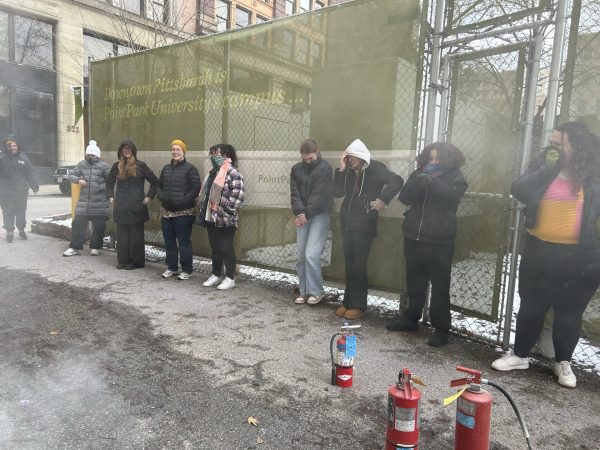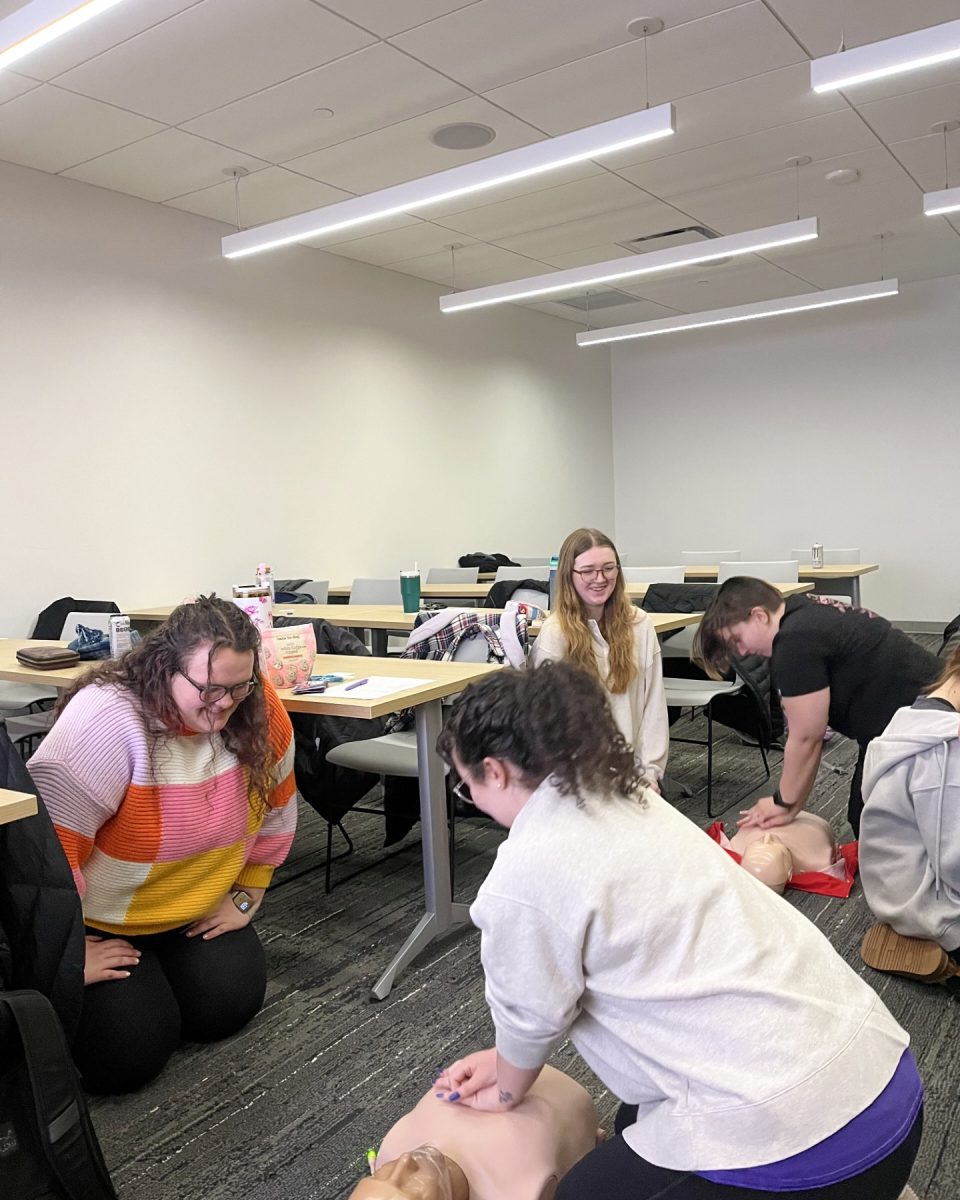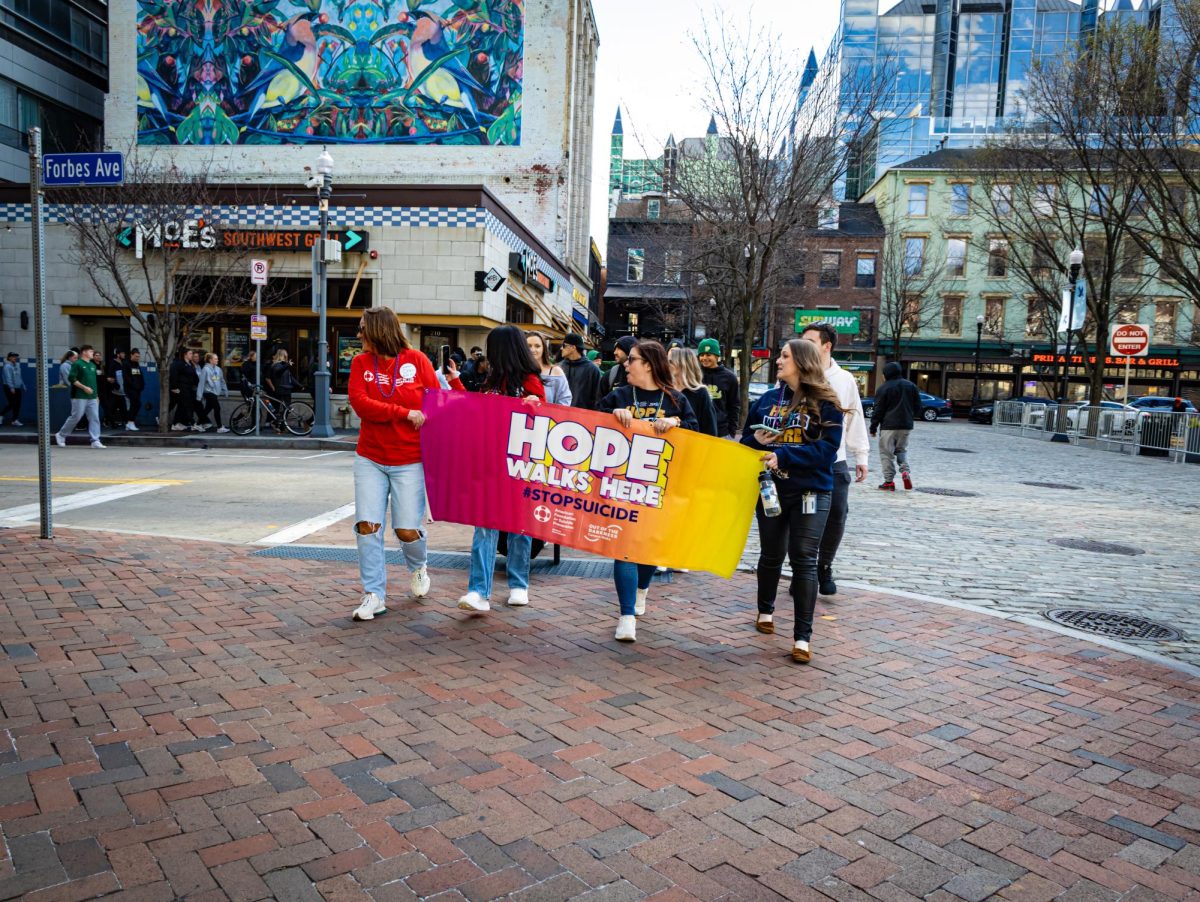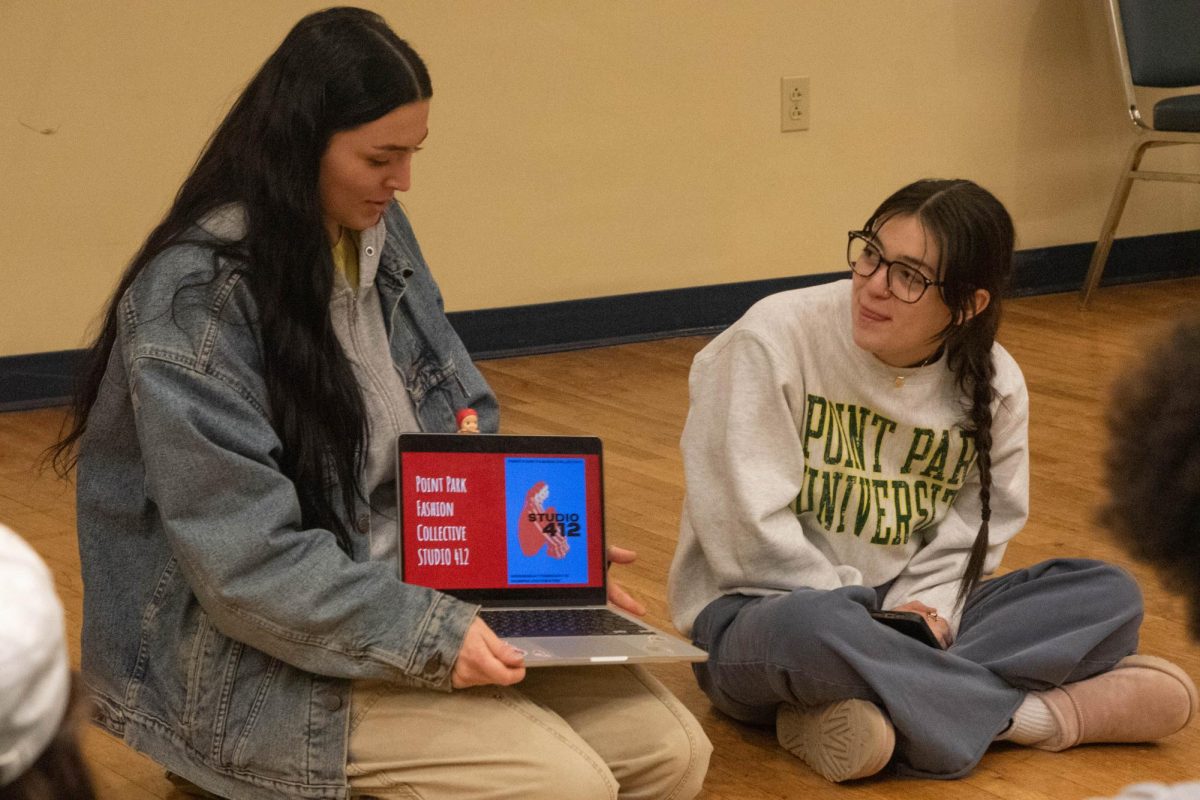Students now can get CPR certified alongside faculty and staff by taking one single class.
In the Spring 2024 semester, Nurse Rebecca Harper, who has been CPR certified for 10 years, and Safety Manager Kelly Staschak teach the classes.
For a regular CPR class, which lasts around two hours, the cost is $20. For the full first-aid course, which will last roughly three, to three and a half hours, the cost is $30.
The class consists of watching informational videos and practicing hands-on with the CPR dummies. This includes practicing rescue breaths and abdominal thrusts, formerly named the “Heimlich Maneuver.”
The classes are taught through the American Heart Association, which Harper is credentialed through.
“We go off what their guidelines are,” Harper said. “You get a card from the American Heart Association, watch videos, the whole nine yards.”
Even without a certification, civilians can still do CPR, but Harper encourages students to get the certification anyway.
“There’s been a big shift in CPR, which is interesting,” Harper said. “We’ve kind of gotten away from doing breaths, and in the class, you’ll hear about hands-only CPR.”
Harper said, besides student leaders, she hasn’t had a lot of students want to take the class.
“We’re still making it available to anyone who wants to take it,” Harper said.
Some of the organizations on campus are already CPR certified.
“Our police are obviously CPR certified,” Harper said. “Just right over break, we [certified] the CABbies, and I think we’re going to offer it to the REs over the summer.”
Harper said she also certified the Pioneer Ambassador Leadership last year.

Submitted by Thea Smith
Thea Smith, executive director of the Campus Activities Board (CAB), said 11 of the 13 student board members of CAB got certified.
“When it came to planning our Spring semester training, we were thinking [about] what would be most beneficial for our organization, since we hold so many events on campus and interact a lot with the community,” Smith said. “Seeing that you can never predict what can happen, it just made the most sense to get everyone CPR certified.”
Smith also said that CAB wants to be as prepared as possible for any situation. This reason is why they also got trained to correctly use fire extinguishers and also how to administer an EpiPen and an inhaler.
According to a press release from CAB, “the decision to include CPR, First Aid and Fire Safety training came after student concerns arose at the start of the fall semester […] regarding the lack of medically trained staff at on-campus events.”
“I am grateful to Nurse Rebecca and Kelly Staschak for allowing us this opportunity to ensure safety and security at all CAB events,” Sydney Rendahl, CAB’s vice president of marketing said in the press release.
Along with the CPR certification earned through this course, students can also earn Automated External Defibrillator (AED) certifications.
The press release quoted Keely Sapienza, director of Student Activities, Involvement and Leadership (SAIL) and the Student Center.
“This decision was an intentional step to empower students as leaders on campus,” Spaienza said in the press release. “It not only helps with being prepared for emergencies but helps with their professional development and gives them another thing to add through their resume.”
Students interested in getting CPR certified can register for the class on PointSync or through appointment on the Health Center website.
“You never know where you’re gonna be when someone needs CPR,” Harper said. “That’s why I offer it – because I think the more exposed you can get to it, the better.”













